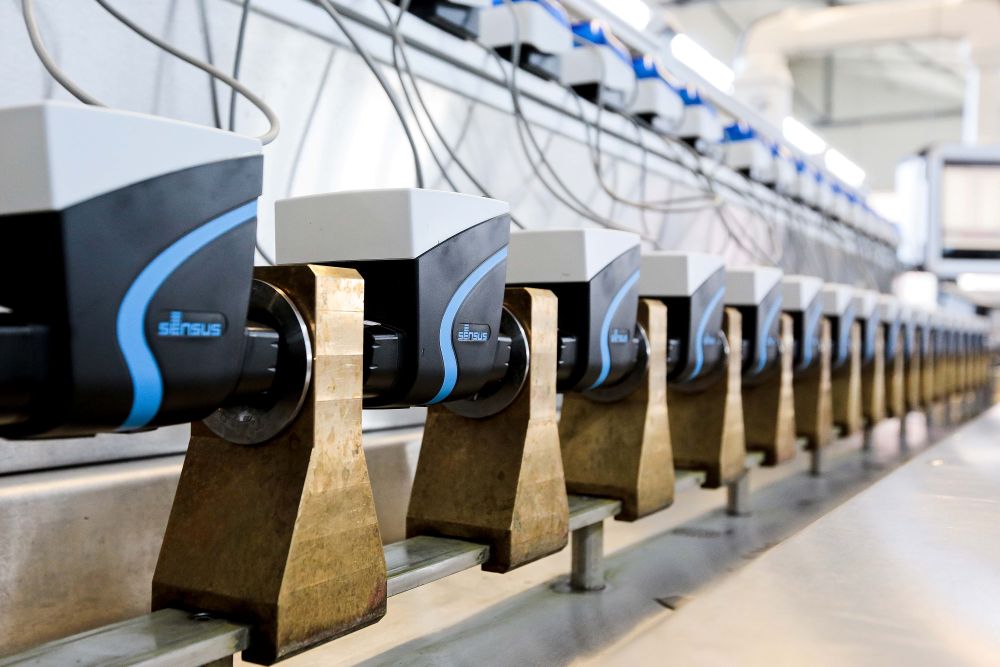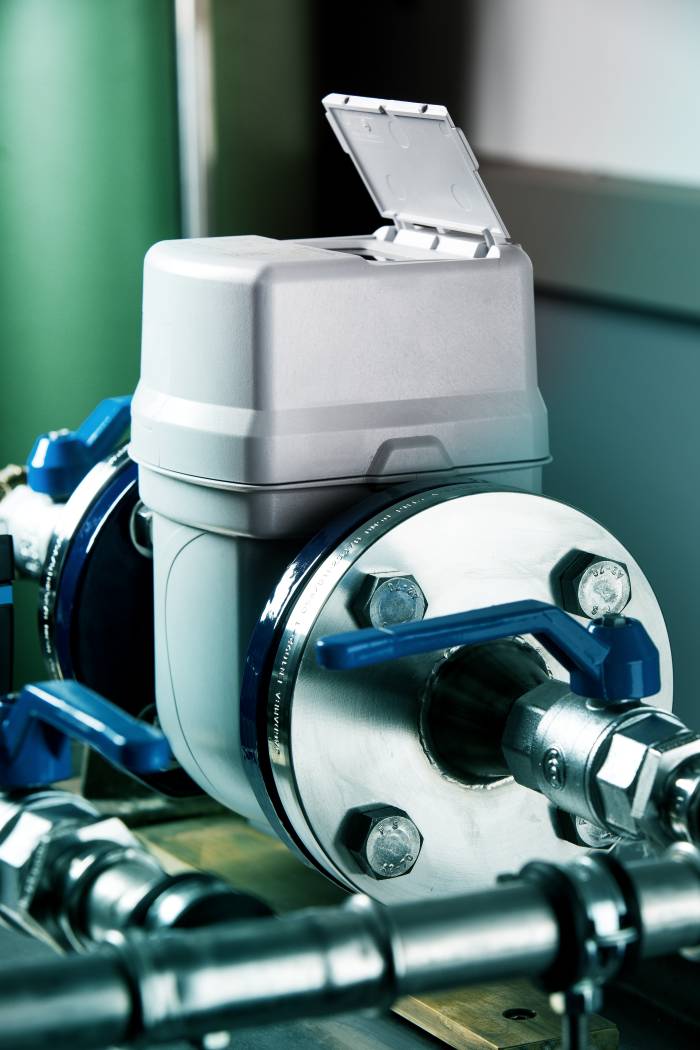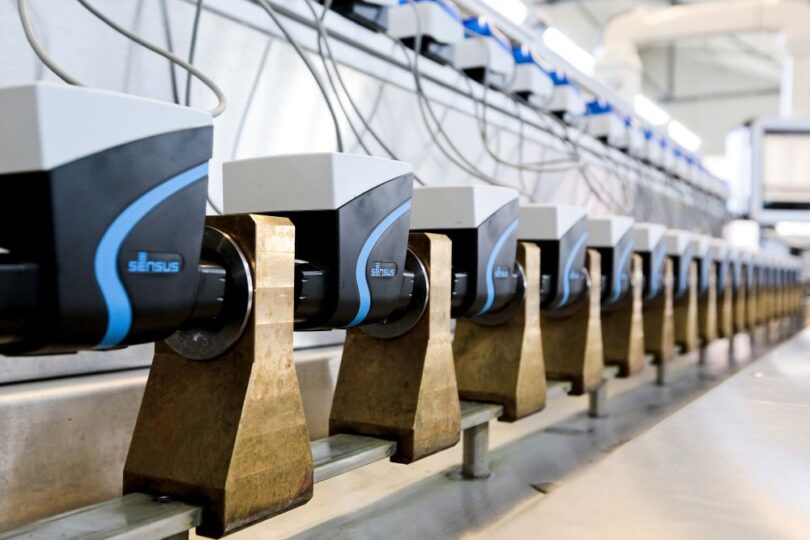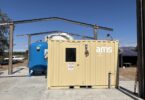In the heart of a bustling city, beneath the surface of every neighbourhood, lies an unseen crisis: Non-Revenue Water (NRW). It’s a hidden problem that plagues water utilities across the globe, costing municipalities billions of pounds overall every year. NRW has a huge impact on an economy, so investing to ensure water networks are managed effectively is becoming a top priority for utilities globally.
Xylem, a leader in smart metering, is taking a proactive approach to address this issue with a combination of technology and expert knowledge. Xylem’s smart meters take the guesswork out of water management by providing continuous, real-time data that can be remotely monitored. This means utility operators no longer have to wait for manual readings or rely on estimated consumption, instead, everything is available instantly! This level of accuracy ensures that customers are billed properly for what they use and prevents utilities from under-reporting or overlooking water loses.
I spoke to David Nicklin, Head of Technical Marketing at Xylem, to delve deeper into their work and ask some questions about how their technology can successfully address NRW.
Xylem’s Approach to Tackling NRW
Xylem’s strategy to reduce NRW revolves around three key pillars: smart monitoring, data-driven insights and predictive analytics. Their technology solutions focus on detecting and addressing leaks in real time, optimising water distribution and providing utilities with the data they need to make informed decisions.
Smart Monitoring Systems
Xylem’s advanced sensors and real-time monitoring technologies help utilities detect water losses, leaks and inefficiencies in their networks. By continuously collecting data from water meters utilities can gain a clear, up-to-date view of their systems and quickly identify areas that require attention.
“Our smart metering solutions help utilities manage water consumption more efficiently. Our meters range from residential to commercial and industrial. This broad spectrum of metering solutions ensures that utilities can manage different sectors effectively.”

Data-Driven Insights
Xylem’s data analytics platforms aggregate information from across the water network, allowing utilities to track performance, detect anomalies and predict when maintenance is needed.
“We can create models of their systems called digital twins so that they can then use the real-time data, put it against the twin that they have, which they think is reflective of their network and see if there’s any discrepancies. Hone in on where there may be a problem in the network, not necessarily unauthorised usage. These digital twins provide a dynamic, accurate representation of a water network, allowing utilities to make faster, more informed decisions.”
Predictive Analytics
Xylem’s analytics tools can help pinpoint potential failure points in the water network and collate water consumption data, which subsequently assists utilities to better allocate resources, prioritise infrastructure investments and improve long-term water network efficiency.
“I think it’s like anything. The more sensing you have, the more input you have, the more data points you have, the better the resolution that you have on the network. Over time, you get a higher resolution of what is going on and greater accuracy and greater control and more timeliness as to being able to react quickly.”
Detecting Leaks Early And Tackling Water Theft : It’s All About Saving Water and Reducing Costs
One of the standout features of smart meters is their ability to detect leaks early. Water losses due to leaks are one of the primary causes of NRW. With Xylem’s smart metering systems, operators can receive immediate alerts when the data shows unusual patterns, such as sudden drops or spikes in water flow that may suggest a leak. Identifying leaks early allows for faster responses, reducing the amount of water lost and minimising the cost of repairs. The ability to pinpoint leaks quickly not only saves water but also reduces the financial burden on utilities, helping to keep operational costs in check.

Water theft is another common source of NRW. Unauthorised consumption can be difficult to spot without detailed monitoring, but with the real-time capabilities of Xylem’s smart meters, utilities can track usage more accurately. If a meter detects an irregularity that suggests water theft, operators can act swiftly to investigate and resolve the issue. This proactive approach helps utilities reduce unaccounted-for water and the associated revenue losses.
Another key benefit of Xylem’s smart meters is their ability to provide more accurate demand forecasting. With a steady stream of real-time data, utilities can better anticipate peak demand times, plan their water distribution and adjust resources accordingly. This improved planning helps to avoid overproduction, which can lead to unnecessary water losses and more inefficiencies.
Case Study: Thames Water’s Success with Xylem Technology
One of the standout examples of Xylem’s impact on reducing NRW comes from Thames Water, the UK’s largest water and wastewater services provider. Thames Water has been using Xylem’s technology to help address its own NRW challenges, especially as the company deals with the pressures of an aging infrastructure, population growth and increasing climate uncertainty.
In 2019, Thames Water implemented Xylem’s real-time monitoring systems to better track the performance of their water network. The goal was to reduce NRW, which had been a persistent problem due to leaks and inefficiencies in the system. By integrating Xylem’s data-driven insights and smart monitoring systems, Thames Water was able to identify areas of significant water loss and quickly intervene to repair leaks and optimize pressure levels across the network.
The results have been impressive, with a significant improvement in water loss alongside a reduction in consumption of 13% from the areas where Xylem’s technology was implemented. The company was able to save millions of litres of water annually, while also lowering operational costs. Furthermore, customer satisfaction improved as the system became more reliable and water pressure remained consistent, even during peak demand periods.
The Current State Of NRW And Smart metering For A Sustainable Tomorrow

The problem of unauthorised water usage and inefficiencies is not new- it’s been around for centuries. What has changed is the ability to track, manage and resolve these issues through modern technology. The key is to encourage greater adoption of these solutions by utilities and municipalities, especially in regions that are most vulnerable to water scarcity and climate-induced stresses. Investment in smart infrastructure, data analytics and predictive maintenance is crucial for the future of water management.
“Our solutions at Xylem are about the overall holistic ideal and recognising that you need to have accurate data to gain all the benefits of an efficient system.”
By embracing smarter, more efficient water management practices, utilities can ensure a sustainable and equitable water supply for all, even in an increasingly unpredictable climate.
“Utilities all want the same end objective, but how you get there is obviously important and that’s one of our priorities. We don’t prescribe one solution—we have different products, solutions, and services that can help utilities on their journey as they travel towards digitalisation. Ultimately, we aim to work with our customers to provide the most optimal solution, for wherever they are on their journey towards digitalisation.”
Conclusion
The need to reduce NRW is more urgent than ever, especially as climate change and droughts place additional stress on already stretched water systems. Xylem’s technology has shown time and again that it can play a crucial role in improving water network efficiency, helping utilities save millions of litres of water and reducing operational costs. However, the widespread adoption of these solutions requires continued investment, education and collaboration.
“By embracing smarter, more efficient water management practices, utilities can ensure a sustainable and equitable water supply for all, even in an increasingly unpredictable climate.”







